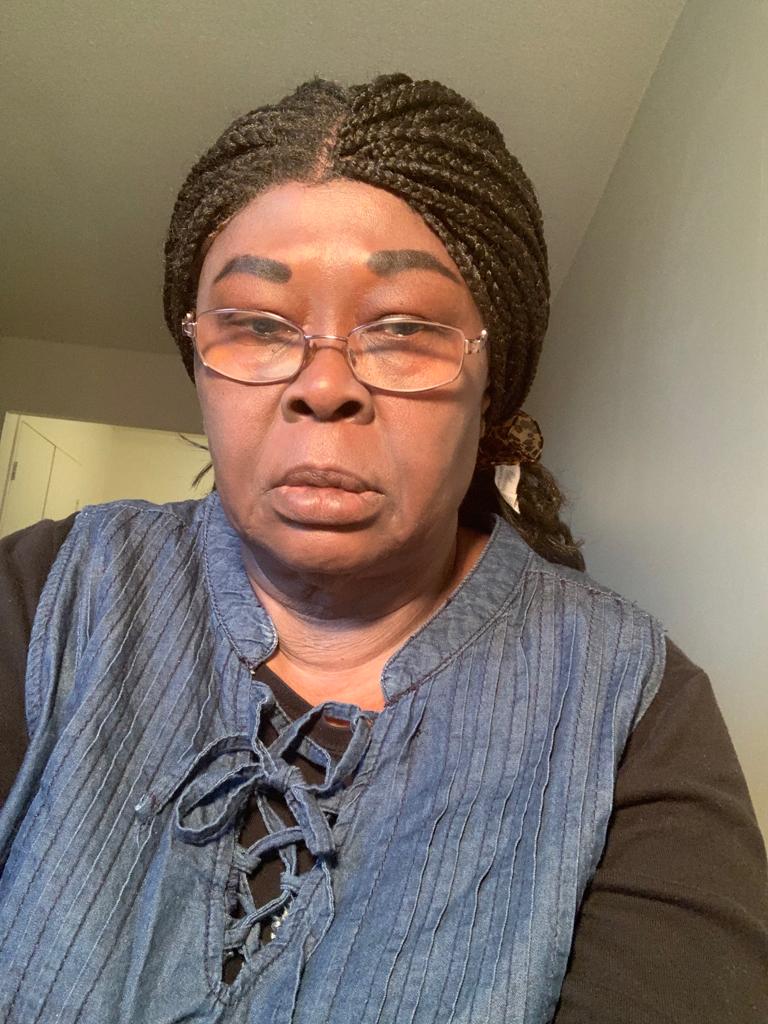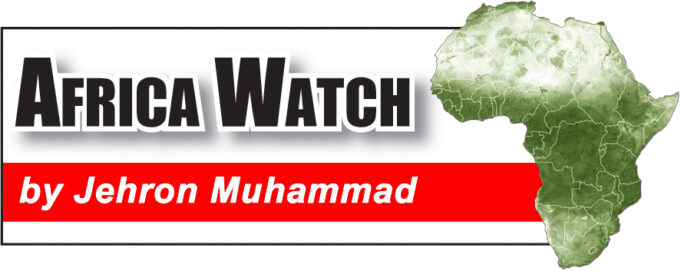Sudanese activist, educator Nour Tawir Aburass
Anti-military coup, pro-democracy marches occurring in Sudan with growing numbers and increasing frequency since October show there is a renewed, unquestionable call among the people for civilian rule.
The growing protest movement is a sign, this writer was told by longtime Sudanese activist educator, Nour Tawir Aburass who hails from the Nuba Mountains, that the Sudanese people and their “movement” will not be “deterred.”

Aburass, a graduate of Khartoum University in Anthropology and English literature, said the revolution has grown new legs with the “demonstrations.”
“If you see the people in demonstrations there is no differences, they function as one. There is no distinction,” Aburass told Africa Watch from her home in Ottawa, Canada.
The transition government handed to the people of Sudan is an oxymoron, she said. “The world believes that it is a democratic and political regime. There has (in government) never been something called democratic and military regime,” she argued. “It can’t be like that. It will never go like that.”
The military should return to their barracks and take up their sole responsibility of protecting the Sudanese citizenry, she continued.
“We’ve had three tough years,” Aburass noted.
The so-called “transitional government” was predated by a 2018-2019 protest movement that led to the removal of President Omar el-Bashir, then recent protests “forced” Prime Minister Abdalla Hamdok into resigning from the military controlled transitional government Jan. 2, she continued.
During a resignation speech on state TV, Hamdok said, “To our armed forces—the army, Rapid Support Forces, police, and intelligence services—I say the people are the final sovereign authority.”
“Hamdok was isolated from the beginning,” said Alex de Waal, British researcher on African politics and executive director of the World Peace Foundation at the Fletcher School of Law and Diplomacy at Tufts University. “I think he had two plans, one preventing further bloodshed because the protest movement didn’t accept his compromise proposals, and second he sees the economic precipice over which Sudan is headed into. He felt that he could engineer enough of an economic bailout to prevent the worst from occurring,” said de Waal, on Al Jazeera’s “Inside Story.” As a postscript, Hamdok failed miserably and lost all credibility with the demonstration movement.
Later in the show, de Waal said Sudan’s military regime in some ways is a very familiar one. “They put on the clothing of nationalism (including Sudan’s national dress).”
“One of the defining faces of the regime is the extent to which it has penetrated the economy and especially rural society. It has militarized much of the commercial sector and increasingly the rural sector as well,” he explained. And, the researcher said, an extensive commercial enterprise is owned by “the Number Two in the regime, General Hemedti and his Rapid Support Forces, who are the de facto governing power in Darfur (and) in many of the rural areas.”
“And the depth of the kleptocratic control and the entanglement of this kleptocratic system in the regime, with Egypt, with the Gulf States etcetera, means that this is actually a different regionalized form of a kind of military government that will be hard to uproot,” he explained.
“And I think that this is what Hamdok, as a conventional economist that had a vision of Sudan resuming as a developmental trajectory, he was saying, ‘I cannot find a way back to the economic and social stabilization of Sudan.’ ” De Waal concluded, “We are in the grip of this monstrous transboundary military kleptocratic military system.”
During same show, Ahmed El-Gaili, a Sudanese attorney and legal commentator focusing on Sudanese politics, called Hamdok’s resignation a “consequential and irrelevant event.”
Despite all the headlines, he described the resignation as the most consequential “in Sudanese history.”
But as far as people on the street are concerned, Hamdok is irrelevant, he added. “The minute he went rogue and signed that agreement” with self-appointed Sovereign Council leader, Gen. Abdel Fattah al-Burhan, and Deputy Sovereign Council head and Rapid Support Forces General Mohamed Hamdan Dagalo (also known as Hemedti), the prime minister lost whatever credibility he had left.
“It is irrelevant because it was weeks in the making (he announced a possible resignation two weeks before leaving) and at the same time it’s a consequential event mainly for the international community to move on from this event. It removes the last remaining fig leaf from the October 25 military coup,” said El-Gaili.
“Now people see it for what it really is, a full-fledged military regime,” he argued, adding, “It forces the international community to refocus and reengage.”
Sudan’s anti coup, pro-democracy movement, according to Aburass, is returning to the heights of its 2018-2019 action. It has the potential of going beyond those days, displays an unwillingness to compromise, and is armed with the experiences of the past, she said.
With patience rooted in a long history of “struggle” dating back to 1956, and further, to the colonial period of 1899-1956, she believes this revolution is the Sudanese peoples to win.
Follow @jehronmuhammad on Twitter.













